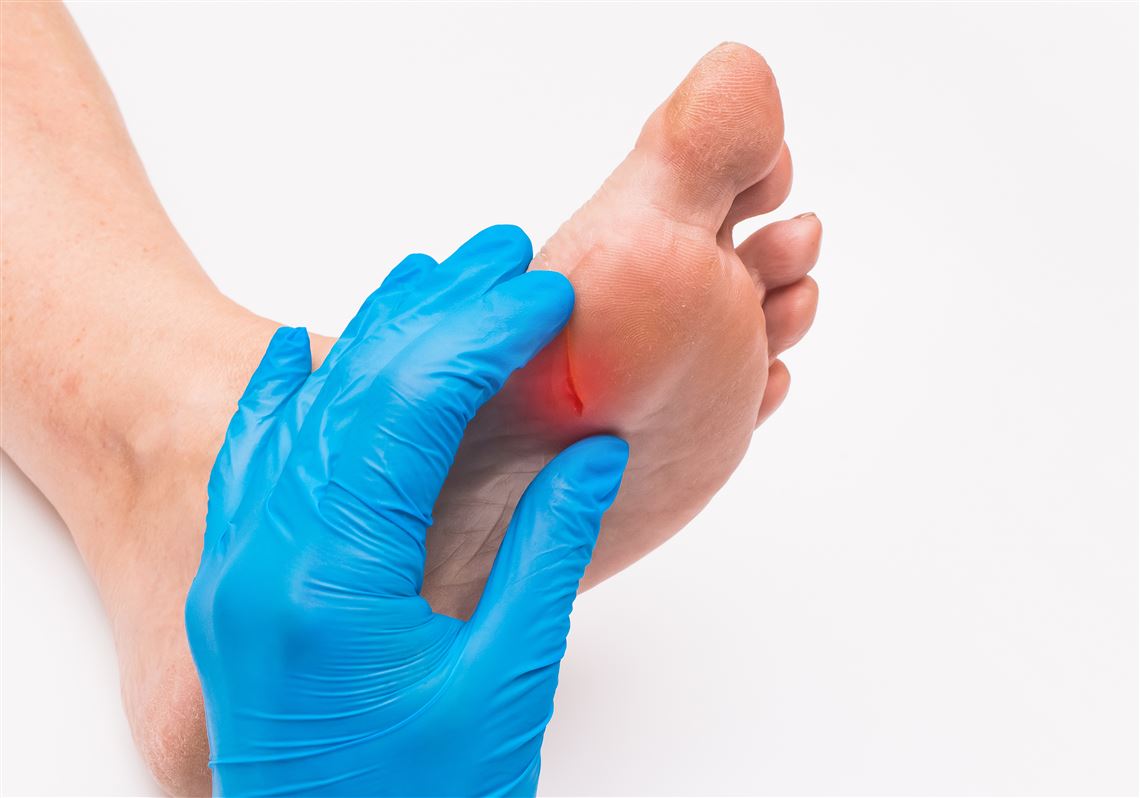Check out the Pittsburgh Post Gazette article written by Pitt McGowan director Dr. Sen about his vision for the institute and the new NIH Diabetic Foot Consortium that he brought to the Commonwealth of Pennsylvania.
“Every step we take is a simple, effortless act we often take for granted. But what if I told you that, for millions of people living with diabetes, each step could be a ticking time bomb? Welcome to the world of diabetic foot wounds, a silent danger that’s threatening lives and limbs across the globe. Diabetes doesn’t just affect your blood sugar; it can sneakily take away your ability to walk, work and live life to the fullest.
As a researcher who has dedicated their career to understanding wound healing and developing wound care innovations, I believe it’s time to shine a spotlight on this often-overlooked crisis and understand why we all need to pay attention.
When we think of medical treatments, we often picture medications, surgeries to fix problems or therapies to help us recover. But there’s another important medical intervention that might not immediately come to mind: amputation. While it may sound drastic, amputation is a crucial medical procedure used to safeguard the lives of those with diabetes and life-threatening foot ulcers. People with low incomes and Black Americans are more likely to undergo amputation.
Almost half of individuals who have an amputation due to vascular disease will die within five years. This is higher than the five-year mortality rates for breast cancer, colon cancer and prostate cancer. In the United States, 200,000 people have amputations each year, and about 130,000 of those have diabetes. An estimated 2.1 million people live with limb loss in our country, and that number is expected to double by 2050. The skyrocketing costs to society are unbearable. As a community we have the power to slow this down.
In Pennsylvania, 1.5 million people suffer from diabetes. Another 3.5 million people are prediabetic. Every year almost 90,000 people in the state are diagnosed with diabetes. The Commonwealth ranks among the top 10 states with the worst outcomes on leg amputation. The good news is that there is hope! Pennsylvania is well positioned to fight back.
The McGowan Institute for Regenerative Medicine of the University of Pittsburgh is, as of July 1, newly home to the national Diabetic Foot Consortium, sponsored by the National Institutes of Health. This consortium facilitates the highest quality of clinical research on diabetic foot ulcers that will answer clinically significant questions to improve healing and prevent amputations. To ensure that the benefits of clinical research and improved care reach communities across Pennsylvania, the McGowan Institute for Regenerative Medicine has announced the formation of a PittMcGowan Wound Research Consortium with a network of 21 wound clinics statewide.
Prevention of diabetic foot amputation starts with daily foot care at home. You should:
- Check your feet every day for cuts, sores, blisters, redness, swelling and/or any changes in skin color or texture. Use a mirror if needed, or ask a family member for help if you can’t see your feet clearly.
- Wear well-fitting, comfortable shoes with adequate support. Avoid tight or pointed shoes.
- Inspect your shoes before putting them on to ensure there are no foreign objects inside that could hurt your skin.
- Avoid walking barefoot, even at home.
- Follow your health care provider’s recommendations for medication, diet and exercise to manage your blood sugar levels effectively. Monitor your blood sugar levels regularly.
- Schedule regular foot exams with your health care provider or podiatrist.
In the fight against diabetes-related amputations, the “It takes a village” saying couldn’t be more accurate. While medical advancements play a crucial role, it’s the active involvement of communities that can truly transform lives.
If you are living with diabetes, you understand the heightened risk of developing foot wounds and the dreaded prospect of amputations. But I want you to know that you have the power to change this narrative, not just for yourself but for countless others facing the same battle. First and foremost, if you have a diabetic foot wound or sore, I implore you to seek specialized wound care. You are not alone. There is a community of health care professionals who specialize in diabetic wound care. They have the knowledge, skills and resources to help you heal faster and reduce the risk of complications. Specialized wound care can make a world of difference, preventing infections, promoting faster healing and ultimately preserving your limbs and your independence. Don’t delay seeking the care you deserve.
Here’s where you can take it a step further, making a difference not just in your life but in the lives of countless others who will come after you. Consider enrolling in clinical research. By participating, you become a beacon of hope, a pioneer in the fight against amputations. Your decision to seek specialized wound care and enroll in clinical research is an act of courage and resilience. It’s a statement that says, “I will not let diabetes define me, and I will do everything in my power to protect my health and the health of others.”
Chandan K. Sen. is director of Pitt’s McGowan Institute for Regenerative Medicine and chief scientific officer of UPMC Wound Care.”




